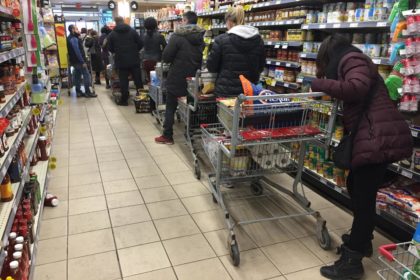
While trying to keep up with increased demand during the pandemic, fermented food brands can’t lose sight of their core values and business strategy.
The COVID-19 outbreak has altered retail sales, with fast-paced, constantly changing sales and production cycles. Customers are going out of their way to find natural and fermented products, believing healthy food will be one of their best defenses against the global virus. But there is also pressure on pricing, with soaring unemployment and large segments of the economy shut down.
Dan Lohman, author of Brand Secrets and Strategies, says brands that sacrifice quality in order to compete on price will suffer.
“We as a natural (industry), we need to do everything we can to help leverage this storm,” he says “The mainstream retailer’s Achilles Heel is price – and you’ll struggle to compete if you just think about price. … Don’t apologize for quality. Always, always focus on the quality of the product.”
Lohman, an organic and CPG industry strategic adviser, shared business advice in a webinar sponsored by Whole Foods on “How Do You Future Proof Your Store in Uncertain Times.” Here are four of his strategies to help brands survive the pandemic.
1. Focus on Quality
As consumers experience wage loss and unemployment, brands will be tempted to drop their prices and offer a cheaper product. Lohman calls this a tired strategy.
“When you’re thinking about gluten-free, plant-based, some of these other things that we champion that start in our industry, these are the things that are driving sustainable sales across every single channel,” he says. “We should never have to apologize for good quality. Understand it’s our products, our industry, that’s responsible for growth across every category.”
Nielsen Data shows total U.S. food sales are up 1.9%, but natural and organic sales are up 11%.
The modern consumer frames their shopping list by the adage “You are what you eat.” They know eating a healthy, nutritionally dense food will keep them full for longer than a cheap, generic product.
“If I buy the cheap generic bread, I’m hungry almost before I finish eating it. If I eat the best mainstream bread, I may be satiated for a few hours. But if I eat the organic bread and that organic bread provides me the nutrition I need, that might satiate me longer. Even though I’m paying more (for the organic bread), I’m paying less overall. That’s the argument this industry needs to make,” he says. “Unfortunately, this is where we need to rethink how we need to go to market. Its not about price, its about value.”
“Focus on that, focus on how you are delivering that real value to your customer.”
2. Know Your Shopper
The natural shopper stereotype is someone who eats a salad and takes a walk. Defining the shopper in a small scope is limiting. Today’s natural shoppers are diverse and united in a common purpose: craving healthy food.
“Creativity is our single greatest asset. This is how we stand out on a crowded shelf. This is all about having a purpose. Natural is really good at that because were all purpose driven,” Lohman says.
3. Maintain a Score Card
Critical during the pandemic is continuing to track sales measurements. Brands need to tell retailers average turns, anticipated sales, ideal backstock, customer insight and category trends.
“A lot of brands today are reactive. They need to be proactive. It’s your name on the package,” Lohman says. “When a customer sees your product out of stock, they’ll blame the brand, not the retailer.”
Eighty percent of natural food brands fail in the first year of operation. Measurements are key to surviving, Lohman says. They show the retailer “the contribution a brand brings to the store.” Your band may not be the top-selling brand in the category, but it may be bringing the most dollars to the category.
4. Market Intentionally
As grocery store shelves quickly deplete of essential goods and medical supplies, natural brands can market their product as a health alternative.
Shoppers are struggling to find cold medicine. How does your product help alleviate cold symptoms? Grocery stores are selling out of flour. Is your product a healthy alternative to a carbohydrate?
“Help customers understand you’re there to solve their unique problems,” Lohman says.
